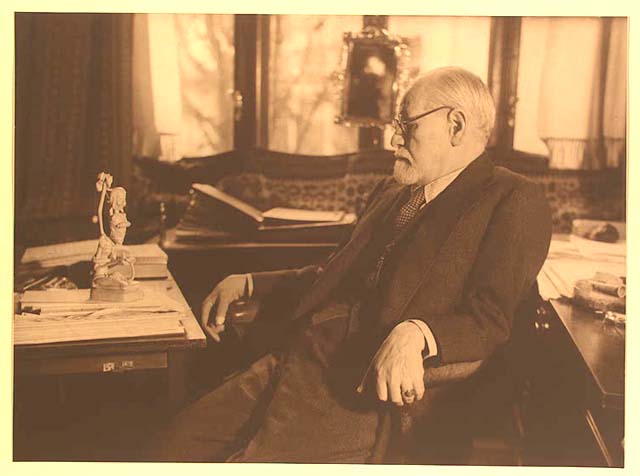

Sigmund Freud:
A Brief Overview
*
Text written by Allie Bangerter*
alison.bangerter@asu.edu
Sigmund Freud was born May 6th, 1856. After the completion of extensive studies at the University in Geneva - and time spent in clinical practice - Freud managed to interpret one of his dream and analyze it. By 1896 - this idea of Dream Interpretation along with the ideas of the Ego and the Id - led to the coinage of the phrase "psychoanalysis".Freud was able to define different elements of an individual's dreams ( the latent vs. manifest) - which could then lead to a interpretational analysis of unconscious repressions. As a result , Freud redefined the concepts of : unconscious, infantile sexuality, repressions, account of the mind's structure. Freud defined himself as the leader of psychological theory and practice - with is still a claim that finds itself the subject of much critical debate. On September 23rd, 1939 - Sigmund Freud was dead.
Freud's ideas of psychoanalysis have become an extensively used tool in literary criticism. It's ideas can be applied to a variety of critical schools of theory - and its purpose is not limited to the arena of psycholanalytical theory itself. In recent years - the ideas of "penis envy" and the "Oedipal/Elecktra complexes" have become deeply instigated into both Feminist Theory and Gender/Queer Theory.
Freud's ideas of psychoanalytical theory can be applied to a literary text in three distinct variations - both having their own advantages and disadvantages.
1. Freud's ideas can be applied to the text's author. This level of analysis requires an extensive knowledge of Freud's book entitled The Interpretation of Dreams(trans. by James Strachey in 1985). This theory expounds on the idea that an author writes his dreams and that by analyzing the text in relation to the author himself (or herself as the case may be) - a theorisist can better understand the subconscious and conscious mind of the text's author. This mode of text interpretation can run into many problems - as the margin of error is very great.
2. Another mode of Freudian literary interpretation can be to analyze a text's characters. This method (in its most basic form) is accomplished by analyzing a character - or charactors - using Freud's basic ideas of psychoanalysis. Since the charactors in any given text are purely from an imaginary realm - the basis of citical interpretation can vary widly from one theorisist to another.
3. The third mode of critical analysis can often find itself incorperated within the arena of Reader-Response Criticism. Instead of analyzing the subconsciouness of an author or a text's charactors, the theorisist instead interprets the minds of the reader as they experiance the text. Also popular in the area of Feminist Criticism - this mode of Freudian criticism has the least amount of error attached to its effectiveness - and it can succeed in discoving many new and unseen elements of a literary work.